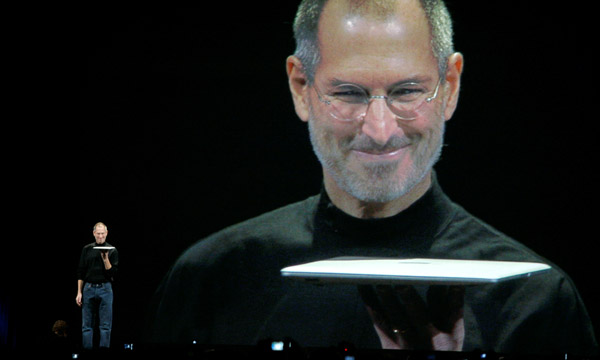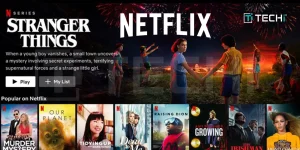When Steve Jobs recently made an appearance on Apple’s earnings call, he – to put it mildly – caused quite a stir. He said 7″ tablets like RIM’s Playbook and the Samsung Galaxy Tab will be DOA. He argued that the fragmented nature of Android is “a nightmare”.
Put in a more straightforward fashion, he smacked a lot of people down.
Yet, many rushed to smack him in return. RIM CEO Jim Balsillie suggested that people will soon tire of Apple telling them what to think. A Tweetdeck developer, whom Jobs referenced when talking about Android’s fragmentation, responded with bewilderment, saying that they have two developers working on their Android app and that it was fine. And good on them all. Jobs’ comments were, if nothing else, pretty arrogant.
But Jobs’ incendiary statements were also evidence of how the man thinks: my way may not be for everyone, but it’s the best way. And with Apple reporting an incredible $20 billion of revenue, it seems many agree.
So why is that that Steve Jobs and Apple in general command so much attention? And more to the point, why does this Apple “reality distortion field exist”?
What Is The Distortion Field?
Obviously, the Apple Reality Distortion field is not a real thing. But it is a useful term to describe a couple of interesting phenomena that surround Apple products:
- Apple the company seems to set the terms of debate in the tech world. Once the touch-screen arrived, it was touch-screen vs. keyboards. Closed vs. open debates are now about Apple vs. Google. Form vs. function arguments frequently reference Apple’s design. Apple is the company who have become a lightning rod for contemporary discussion about technology.
- Apple is perceived to be first to the market, even when it is not. Take something like Airplay. It, at least in theory, differs little from the DLNA wireless standard, but many blogs are calling it a gamechanger. Similarly, Steve Jobs called Facetime “the first video calling on a mobile device”, which it clearly isn’t.
- Users of Apple products fervently defend them against criticism.
So this is something we tech nerds know. But why does this happen?
Apple Has Become a Symbol
Nerds on the web (like us) often look at products in terms sheer functionality. I know I for one was pretty amazed when, on my Android phone, I could directly upload photos to Dropbox or simply install a new media player because I didn’t like the stock one. You can’t do this with Apple products, we claim.
But when people use examples like that as an example of why Apple ‘ain’t all that great’, what they miss is that Apple is not simply a tech company, but a cultural symbol. It isn’t necessarily about ‘sheeple’ or Apple’s marketing successes as much as much as it is that Apple, the media and the public have positioned Apple as a sign of the cultural importance and potential of technology.
For at least the last hundred years, technology has become the thing in our culture that is symbolic of how we’re moving into the future. And Apple has become the company many in our culture look to to determine the direction of that movement: what the trends will be, what technology will dominate etc.
How Apple Got There
So how is it that Apple became this symbol? Well first, it is not the only one. Google are there too, as are RIM, Sony and, even though people don’t realize it, Microsoft too.
But Apple seem to be the most prominent because of a simple, overlooked fact: its products are really obvious. You don’t have to be a tech-nerd to understand that touch screens are neat. You don’t have to be a geek to know that carrying around your music collection and scrolling through it quickly is useful. You don’t have to care about software to know that the way the App Store manages updates is really plain and clear. The benefits of Facetime are clear; no-one cares that you could do it on a Nokia phone years ago.
The point is that Apple’s grand sweeping statements (“we think this is the future of everything!”) connect with people quite easily. And because its products impact culture and not just tech – in things like the mobile web, the iPod, or the iPad – Apple can say what it wants because they are the ones setting the tone of the discussion. It is Apple who is showing everyone, rather than tech geeks, what technology is capable of and how it makes your life better.
What’s more, love them or hate them, Apple has innovated in creative, exciting ways. Whether touch-screens, iTunes, the App Store, the Macbook Air or the iPad, Apple is doing things before others. That’s key. It means that Steve Jobs can be an arrogant jerk because he can actually back it up.
So sure, the ‘reality distortion field’ can be annoying. Sometimes Apple will claim slightly crazy things – like open is bad, or that Android is terrible. Sometimes people forget that other companies are doing things that are just as exciting and innovative. But without understanding the reason for it – that Apple has become our culture’s symbol for how technology is supposed to work – it will never change, and we’ll be in Steve’s thrall for as long as he’s around.





50 User Comments
Tesla
This is the most biased article ever. Apple is symbolic and will remain forever? Where are you getting your stats you apple fan-boy piece of shit.
My $400 laptop can do more then your macbook, air, pro, mac, iphone, ipad, itouch, iShit combined. Your missing a whole side of technology: The shit we want vs the shit apple gives you.
You honestly think apple is the future? go look at the sales stats.
For your information, Microsoft and Google are still more known, advertised and respect then Apple. They are what people feel ‘comfortable’ with, Apple is just for dumb **** that like shiny objects.
Alex
This is exactly why normal people hate nerds. Your comments are just as one sided if not more so. There is also a huge NERD distortion field that people like this “Tesla” person project as well. I doubt you even have any deep experience with any Apple product, or combination thereof. Advertisements if anything indicate that you need more sales, not that you’re more well known.
Honestly though, calling people pieces of shit just for having a different and possibly more reality based perspective, or opinion is entirely uncalled for. Fact is an Apple computers can do just as much as any other computer, the hardware-platform is largely the same. The software is just as capable as any linux box out there as far as nerd use goes, but definitely more useable to NORMAL people. The user interface is certainly more basic, but that really appeals to a LARGE group. That doesn’t mean it’s not capable of more, you just have to be a bigger nerd I guess to understand that. Compared to Windows it is just as capable, It can do all the same stuff, except sometimes where Microsofts proprietary software comes into play.
Overall I don’t think he’s missing anything, the subject of his article is in relation to the perception of Apple. Just because he wasn’t focusing on a fray of other subjects doesn’t mean he’s missing it, it simply means he’s focused on this subject. Which when it comes to writing is important. Readers don’t like a bunch of tangents and side-bars when they read. He touches on a few items directly related to the subject without going into TOO MUCH detail. Which to non-nerd readers who aren’t looking to read a whole technical document, is desirable. Overall I would say to you, GROW UP!
Jaccko
Love my iPad.
David A
Consumer Reports and others rank companies and computers on reliability, support and other yardsticks.
Apple is number one is a large percentage of these rankings.
They must be doing something correctly.
Kiren
Bottom line, Apple is quality, the stuff hardly fails on me, even my 10 year old G4 still runs great.
Bachi
The comments here are a good field study of these days’ Apple foo. Apple as one of few companies masters the art of creating not clients, but believers. It does not produce just products, but believes which are consumed.
The other side of the medal: There is the growing group of active disbelievers, who are fed up with the omni-present “We’re always right” message by Apple, who feel something’s wrong with just following a company’s claims.
And there we are today, believers and disbelievers 🙂